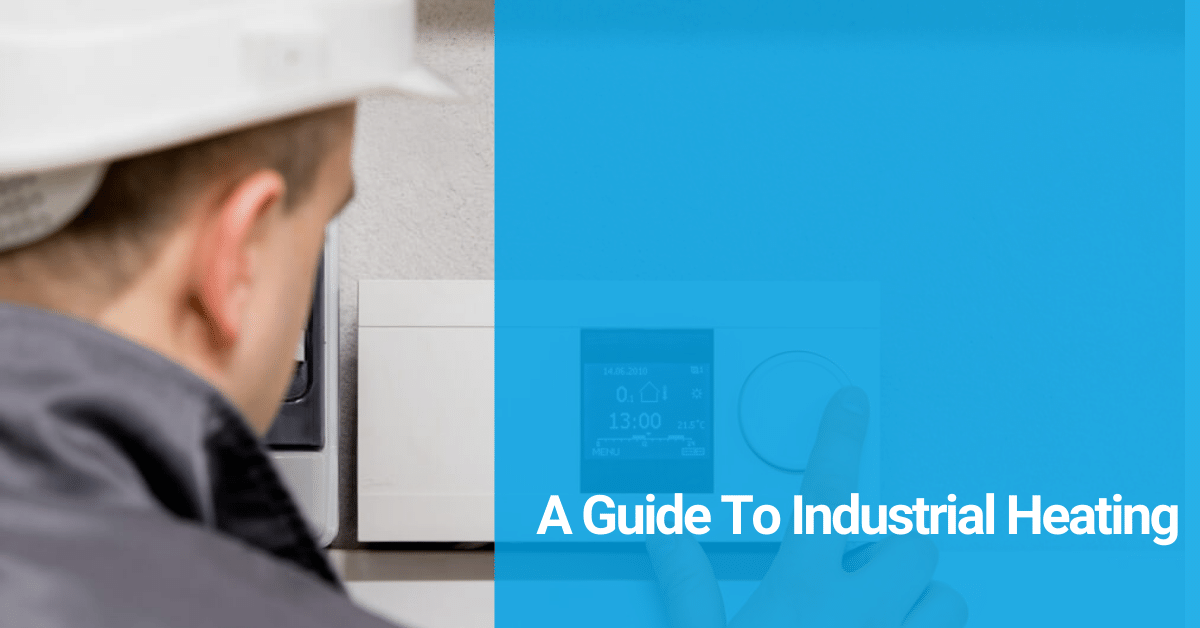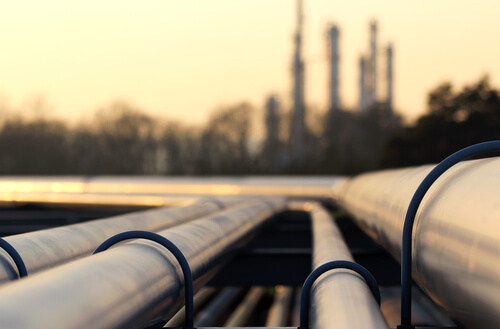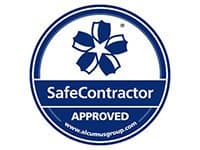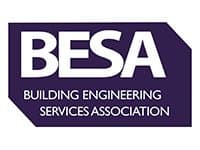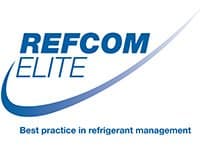If you work in a building, it is easy to take industrial heating for granted. It works in the background, warming or cooling the building and making it a comfortable place to work. But as a business owner or operator, you need to pay more attention to your heating systems to ensure they work well and are energy efficient – which means cost-efficient.
If you want to get to know the basics of the world of industrial heating, that’s what this guide is here to show you.
Why you need industrial heating and what are the benefits?
The most basic reason you need industrial heating is a little different from why we need heating in our homes. Buildings naturally cannot warm themselves to a comfortable level or keep cool enough for people inside to feel happy and healthy. They need systems that can do this for them and that comes from heating and air conditioning.
The main benefit of having these systems is that staff and visitors are comfortable. Some regulations cover the need for certain levels of heat in a workplace and also around the aim to keep it cool enough in the summer.
There are also additional benefits depending on the type of business. For example, if you have computer servers, the cooling and heating system will help to keep them at the right temperature and working properly. The same applies to many other types of machinery and equipment.
New installation or replacing an existing installation
One of the big questions with any heating system is when is the time to go for a new installation and when can you keep repairing what you already have?
There’s no set right or wrong answer to this but there are a few things to consider to help you make the choice. Signs that you may need a new installation include:
Efficiency
If the system is costing you more money while taking into account price increases in natural resources
Reliability
If there are more frequent breakdowns, even for small items.
Leaks or strange noises
If you spot water leaking or notice odd noises from the system, this is a sign of a pending breakdown but if it happens too often, it can be a sign of a failing system.
Unable to get parts
If the system is obsolete, it may become difficult or very expensive to get parts for it.
Better systems available
Sometimes it is just that there are better systems out there that can save money and be more effective.
Installations for different industrial premises
If you decide that renew installation is the way to go, then the heating experts you work with will next consider your business and the building to see what requirements it has. For example, an office block will have different needs from a manufacturing building. A warehouse will have different requirements from a building carrying out research and development. A gym will need something different from a retail property.
The main areas of difference will be down to equipment and machinery in the business. Businesses that mostly just need to keep people warm and comfortable will be roughly similar. But those with equipment that requires certain temperatures or cooling will need a more specific system.
Types of industrial heating
Perhaps the biggest choice you might have when it comes to an industrial heating system is what type to go for. Again, the kind of business you have and the requirements of the property will often make this a clear choice but it is a good idea to have a quick view of the options.
The main types of industrial heating solutions in use:
Warm air heating
A fan draws air across a heat exchanger, heating it and then distributing it into the room. Ideal for constant temperatures and can be fired by various means including gas or oil burner
Destratification heating
This makes use of heat naturally rising to the highest point in a room and uses fans to spread this back into the space.
Air rotation heating
Freestanding heaters are used to create large volumes of lower temperature air and are common in warehouse or logistics buildings where lots of racking is used
Radiant heating
Radiant tubes are suspended from the roof, sometimes with other types of heaters nearer the floor. The heat comes from infrared radiation from the surface to heat the air and nearby objects.
Legal requirements or building regulations for industrial heating installation
Some different requirements and regulations will affect the system depending on how it operates and the building’s purpose.
One example would be if you use a gas boiler to heat any element of the system. Then a regular check is needed by a Gas Safe registered engineer. There would also need to be relevant paperwork to show this has been done.
If there is the need to make changes to the building to create the new system, then building regulations may need to be consulted. The local authority is the body to discuss these matters with.
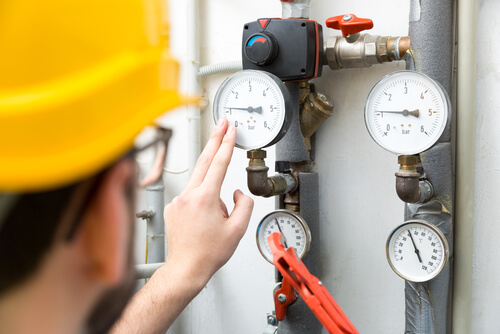
What are the potential problems to be aware of?
While there can always be unexpected problems in installing any system, there are a few things that can be an issue that most installation experts will know about and be aware of.
Top of the list is if there are some kind of restrictions on the building. A listed building is one example where there are many more limits to what you can do. Being in areas such as conservation areas can also make changing the building externally more difficult.
How to maintain your industrial heating once installed
Having a new system installed will often yield an immediate benefit to the cost of heating the building and its efficiency. But it isn’t job done because you do need to have a provision for maintenance.
Most companies who install heating systems will also offer ongoing maintenance or recommend someone who does. This is often a crucial part of a warranty or guarantee on equipment and workmanship. Plus it is good business sense – it is the best way to get the longest possible lifespan from your equipment.
Who should install your industrial heating and why
Having the right expertise while installing industrial heating is a crucial step to getting the right system for your business. Total Environmental Kooling Ltd has been designing and installing industrial air conditioning and industrial heating systems for your buildings for over 20 years.
Our wealth of experience means we understand the variety and scope of industrial premises and their requirements. Our expert team is always hands-on to help you through every step of the process. Contact us to learn more about our industrial AC installations or heating systems by contacting our friendly expert team today.


